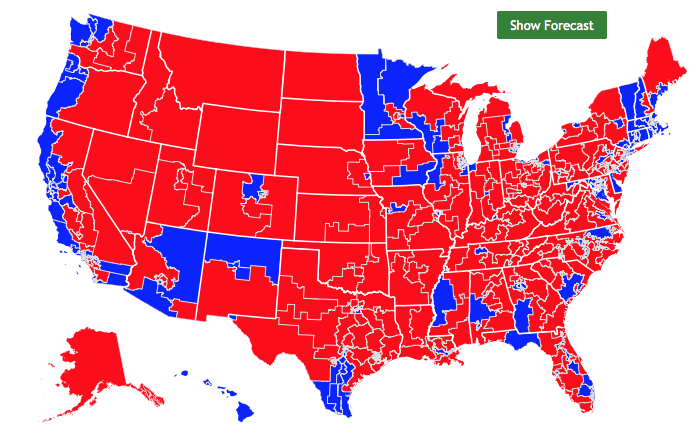Democrats have the people; Republicans have the power

For much of this year, I’ve been working on answering the essential question of politics, “How do Republicans win?”
How did a Tea Partier who’d never be elected to anything that didn’t involve a homecoming game become governor of Kentucky by a margin of 80,000 votes after promising to take health insurance from 420,000 newly insured Kentuckians? How did George W. Bush do better in 2004 than he did in 2000 after leading America through the disastrous four years so terrible that they only looked good compared to his next disastrous four years? Why is Michigan — despite only supporting Democratic presidents and Senators for decades — stuck with far right conservative Republican leadership that continually defies the will of the people?
Why does Republican extremism have almost no cost?
For my and other liberal brains, this question is as baffling as asking a Tea Partier to locate a clitoris on a map.
The answers I generally hear: gerrymandering, voter suppression, old people, low voter turnout, Dick Cheney owns all the voting machines… Except for the theories about votes just not being counted, which if they are true suggest we’re screwed beyond hope and might as well focus on anything but politics, these are decent answers for “how” Republicans win. But not why.
In the past month, the realization that Democrats are in terrible shape — like the worst shape since before the Great Depression — on the state and local level has risen to the surface, though party leaders have been talking about it for a while.
Vox‘ Matt Yglesias plotted out the doomsday scenario and then Lee Drutman did a longer review of the literature explaining Democrats’ problems. His thesis:
Yglesias is probably right. Democrats likely are in deep trouble for the next few decades, barring any unexpected changes.
After reading Drutman’s piece, you’d be shocked to come across Stanley Greenberg’s piece in the Washington Post “Why 2016 could be shattering for Republicans.”
He writes:
The United States is emerging out of its revolutions as racially blended, immigrant, multinational and multilingual — and diversity is becoming more central to our multicultural identity.Further, these revolutionary transformations have accelerated the growth of a new majority coalition of racial minorities, single women, millennials and seculars. Together, these groups formed 51 percent of the electorate in 2012, but our analysis of census survey data and exit poll projections indicates that they will comprise fully 63 percent in 2016. With these growing groups each supporting Hillary Clinton by more than 2 to 1 in today’s polls, it is fair to say that the United States has reached an electoral tipping point.
Meanwhile:
The brand of the Republican Party today has probably not been as tarnished since the Watergate era.
And it only gets better from there, if you’re a Democrat:
When Republicans challenged President Obama in the off-year elections of 2010, 46 percent of the country was conservative at the high point. That figure is now 37 percent.
For Republicans, 2016 will prove to be no normal election, because it will confirm that the new America is here and that the counterrevolution has lost. That is why I expect the result to be shattering for the Republican Party as we know it.
He ends the piece hopeful that the drubbing the GOP could get in 2016 would lead to a radical refiguring of what it means to be Republican.
So could Drutman AND Greenberg be right?
Maybe, sorta. On the national level Democrats have the some sort of inherent advantage that Republicans have built on the state and local level.
But Greenberg’s argument ignores the massive advantages Republicans have built for themselves — not just in redistricting and purposely making voting difficult. It has systemically built a nearly indestructible messaging machine that’s fine tuned to stoke the brains of the married people with tight social networks who get out to vote in each and every election.
All of this is on top of the damage that the inequality conservative economics encourages has done to our democracy: Poor people in poor neighborhoods are the Americans who are least likely to vote — thus government is almost singularly unresponsive to their needs. And the right has systematically destroyed the institution — organized labor — capable of reversing that.
These hard won advantages will not disappear even if there’s a Democratic landslide in 2016. Republicans will likely retain the House, much as Democrats did during the Reagan landslide of 1984.
But a third straight White House loss for the right could force Republican donors to turn on parts of their coalition that are preventing the GOP from winning the White House. Or it could remain satisfied with the tremendous power it maintains from low-turnout off year elections.
Most importantly, a victory in 2016 could keep the right from seating the most conservative Supreme Court in modern history, which is a massive victory in itself.
Heading into 2016, Democrats have the people and Republicans have power. If turnout is low, the power will be enough. But if the people show up, decades of conservative immiseration could be avoided.
[Image from 270toWin.com]



